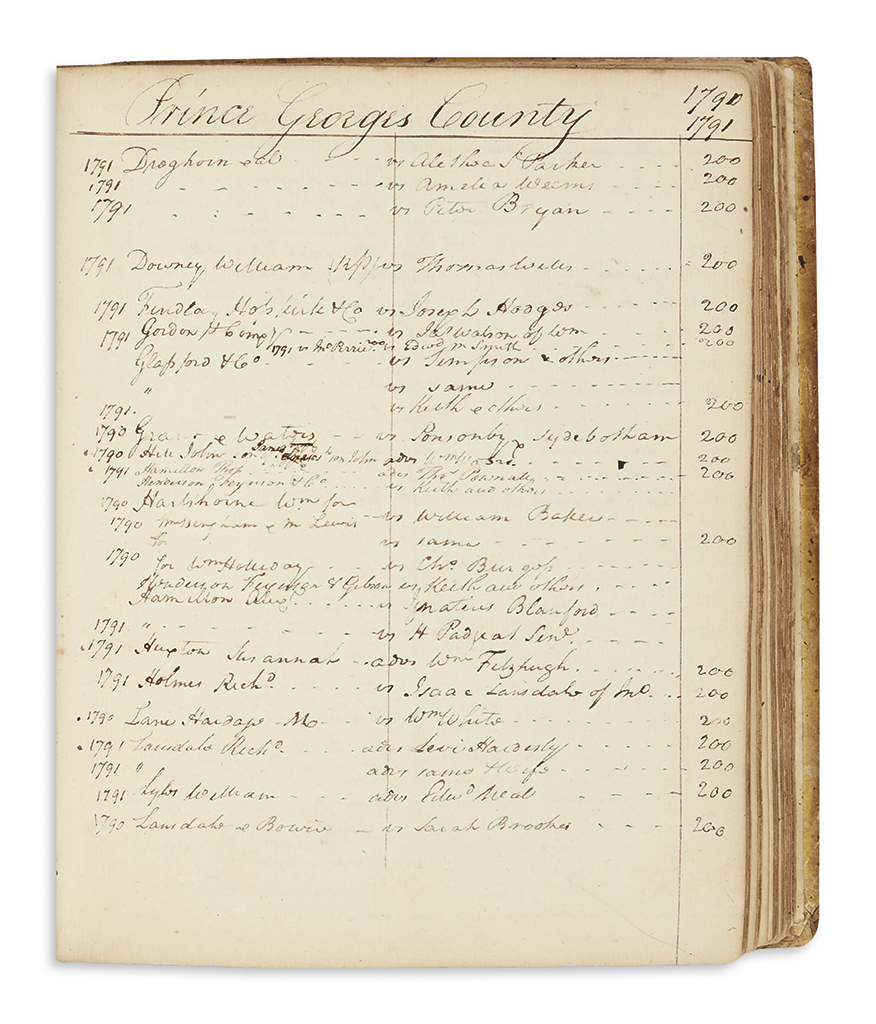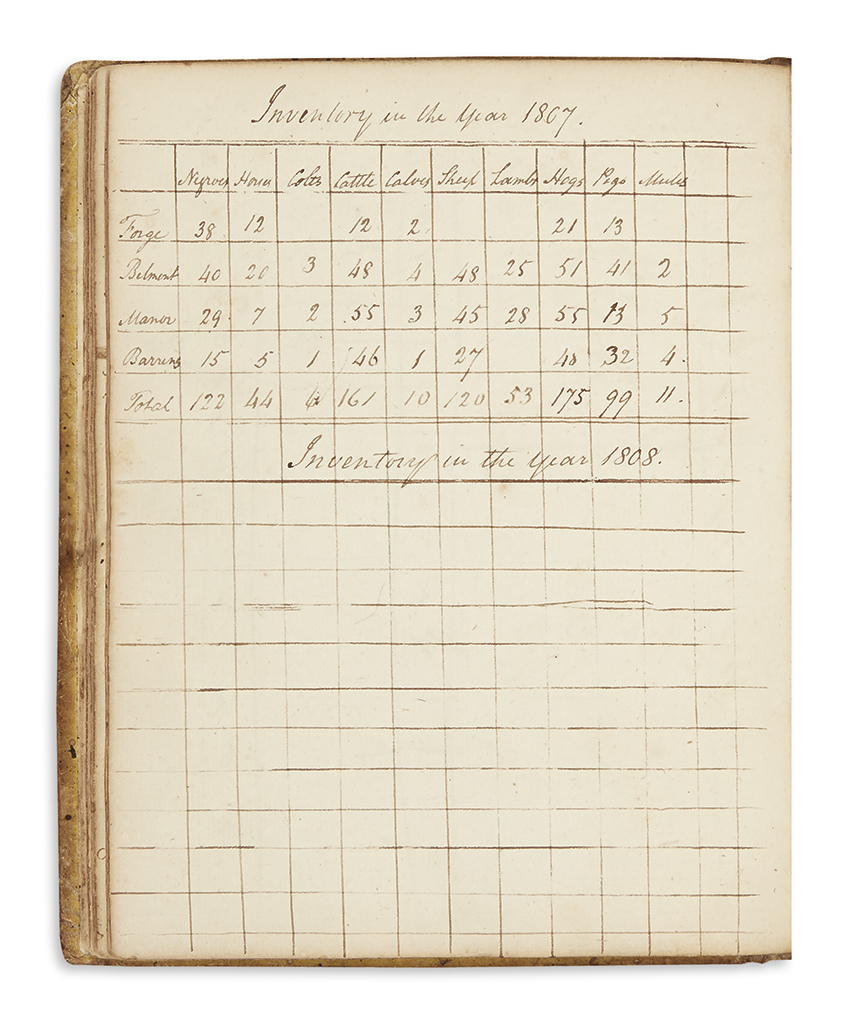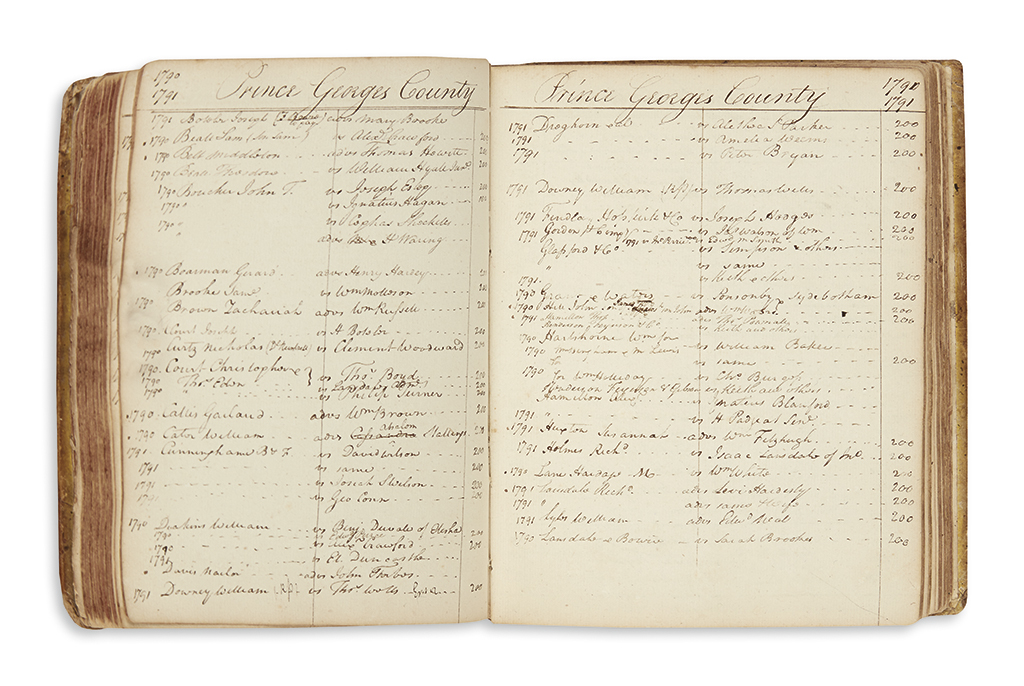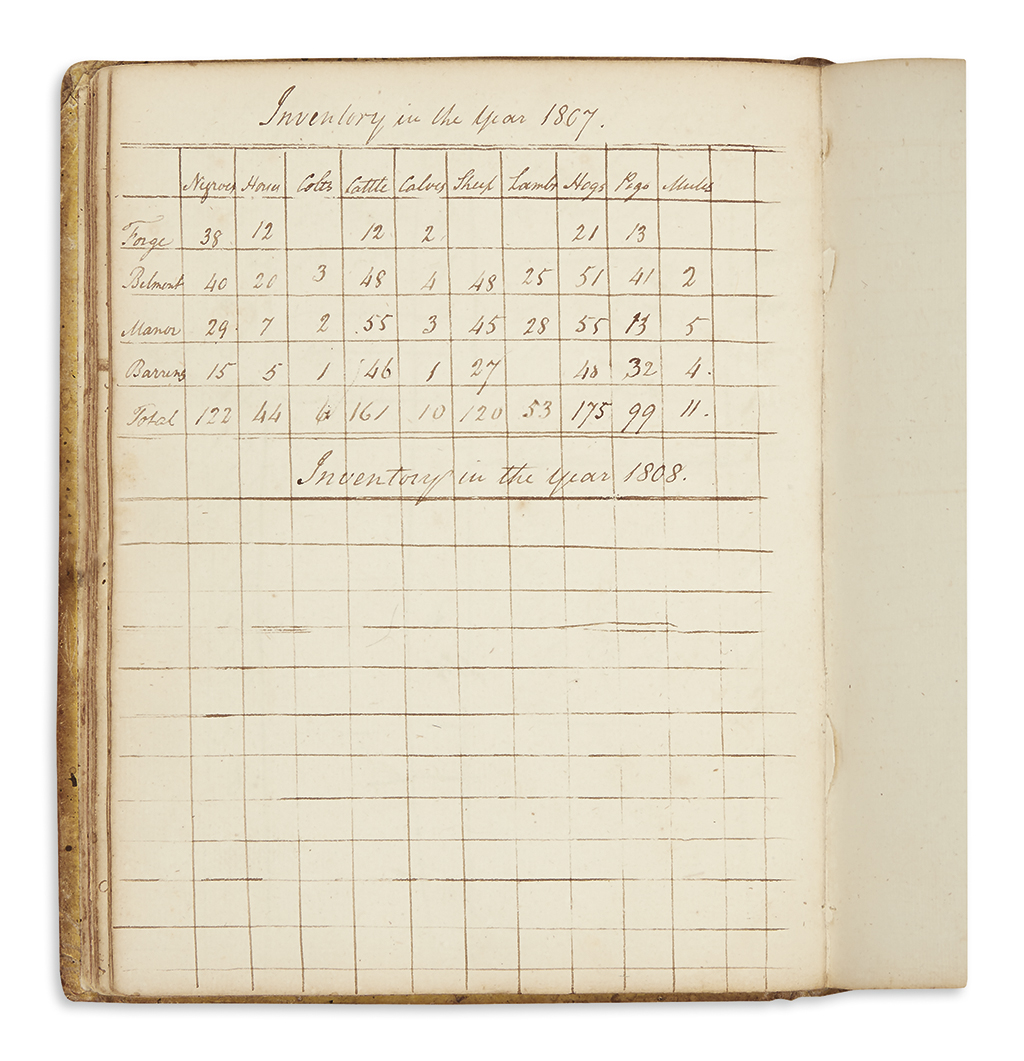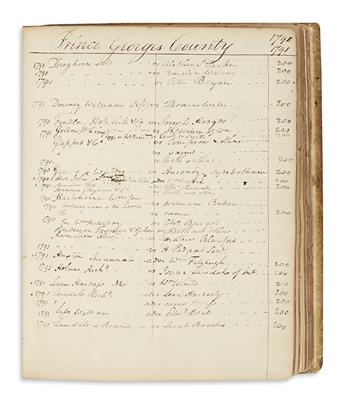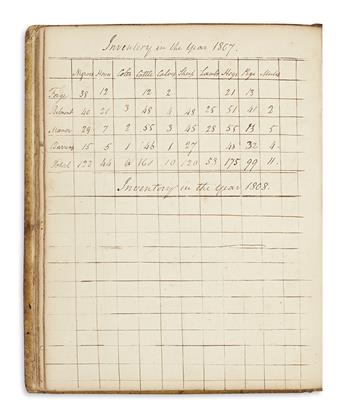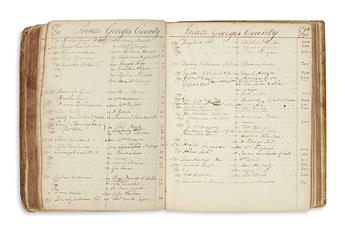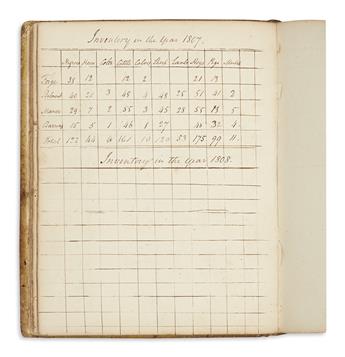Sale 2473 - Lot 91
Price Realized: $ 3,600
Price Realized: $ 4,500
?Final Price Realized includes Buyer’s Premium added to Hammer Price
Estimate: $ 1,000 - $ 1,500
(DISTRICT OF COLUMBIA.) Legal fee book and ledger of William Hammond Dorsey, the builder of Dumbarton Oaks. 220 manuscript pages (128 from 1785-91, and 92 from 1807-09). 4to, original stiff vellum, spotted and slightly bowed; one leaf detached, numerous leaves torn out, short tape repair to first leaf. Vp, 1785-91 and 1807-09
Additional Details
William Hammond Dorsey (1764-1818), son of a wealthy industrialist, began practicing law in Georgetown (then part of Maryland) in 1785. With the incorporation of Georgetown into the District of Columbia in 1791, he invested heavily in land. In 1800, he purchased an undeveloped 700-acre tract from the Beall family called "The Rock of Dumbarton." On this land he built a substantial manor house, but due to financial reverses and the death of his wife, he was forced to sell the property to Robert Beverly in 1805. He soon relocated to Baltimore and continued the practice of law until his death in 1818. Meanwhile, his Dumbarton estate was expanded over the years, and in 1940 was donated to Harvard University as the Dumbarton Oaks Research Library and Collection.
This volume was originally used as Dorsey's fee book from 1785 through 1791, Hundreds of cases are listed here: first a general alphabetical list of clients and their fees for 1785 and 1787, and then similar alphabetical lists arranged by year, 1787-91, with a separate list for cases handled in nearby Prince George's County. Clement Biddle, who had been Commissary General at Valley Forge, was a very regular customer. Benjamin Harrison (possibly the signer of the Declaration of Independence) also makes a 1786 appearance. Dorsey also represented a Thomas West in a 1789 suit against Alexander Hamilton, and then represented Hamilton in 1790.
The book went unused for several years, and was pressed back into action as a general ledger and memorandum book from 1807 to 1809. This section includes accounts for tenants on Dorsey's lands, his extensive bills payable, and his accounts with his father. An inventory of his property in 1807 is presented in table form, itemizing his enslaved people and livestock at each of his four properties; he owned a total of 122 slaves. Among the notables mentioned in this period are Maryland founding father Luther Martin, then serving as a judge in Baltimore, who held several of Dorsey's promissory notes. Provenance: according to a note found in the volume, by descent to Dorsey's great-grandson Vernon M. Dorsey (1869-1954); thence by descent to his grandson Sidney Field Parham Jr. (1918-1996).
This volume was originally used as Dorsey's fee book from 1785 through 1791, Hundreds of cases are listed here: first a general alphabetical list of clients and their fees for 1785 and 1787, and then similar alphabetical lists arranged by year, 1787-91, with a separate list for cases handled in nearby Prince George's County. Clement Biddle, who had been Commissary General at Valley Forge, was a very regular customer. Benjamin Harrison (possibly the signer of the Declaration of Independence) also makes a 1786 appearance. Dorsey also represented a Thomas West in a 1789 suit against Alexander Hamilton, and then represented Hamilton in 1790.
The book went unused for several years, and was pressed back into action as a general ledger and memorandum book from 1807 to 1809. This section includes accounts for tenants on Dorsey's lands, his extensive bills payable, and his accounts with his father. An inventory of his property in 1807 is presented in table form, itemizing his enslaved people and livestock at each of his four properties; he owned a total of 122 slaves. Among the notables mentioned in this period are Maryland founding father Luther Martin, then serving as a judge in Baltimore, who held several of Dorsey's promissory notes. Provenance: according to a note found in the volume, by descent to Dorsey's great-grandson Vernon M. Dorsey (1869-1954); thence by descent to his grandson Sidney Field Parham Jr. (1918-1996).
Exhibition Hours
Exhibition Hours
Aliquam vulputate ornare congue. Vestibulum maximus, libero in placerat faucibus, risus nisl molestie massa, ut maximus metus lectus vel lorem.



